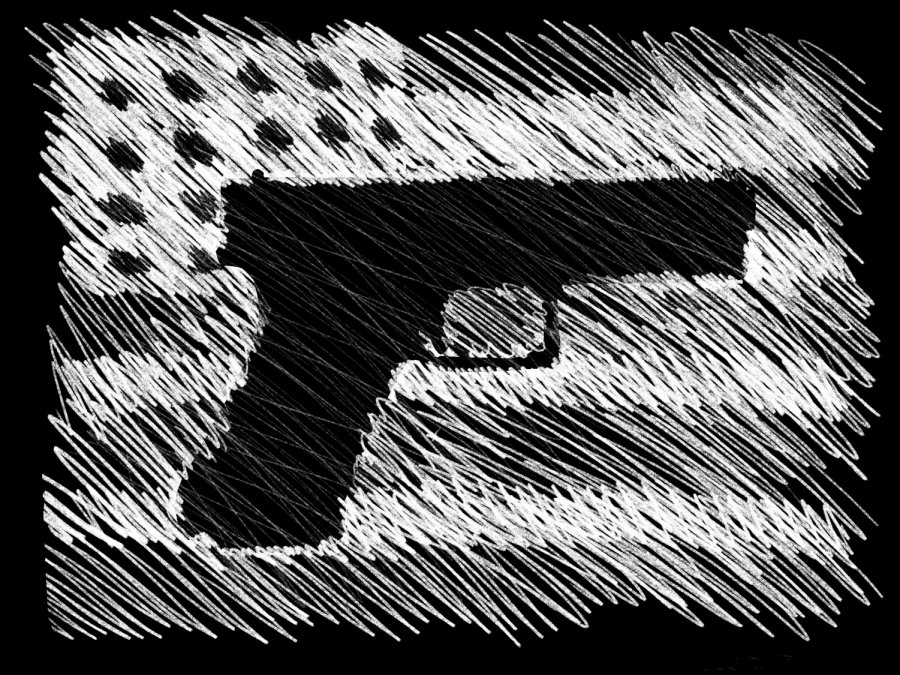Recent Mass Shootings Show Pressing Need for Gun Regulations
April 29, 2021
11,801. That’s how many people in America have died from gun violence in 2021, averaging over 100 people a day. Of these deaths, suicide makes up about 55%, while the other 44% consists of homicide, murder, and accidental gun deaths. Although the number of deaths due to gun violence pales in comparison to daily COVID-19 deaths, there’s no vaccine for this epidemic. Gun violence can’t be stopped by wearing a mask, or by keeping 6 feet apart. We aren’t rounding any corners or flattening any curves. This is something that has plagued America for decades, and it will continue to unless we do something about it.
It’s hardly a secret that America has a gun problem. According to a report from 2017 published by the Small Arms Survey, America has about 121 guns per 100 people. The next leading country in guns per capita is Yemen—a country at war—with 53 guns per 100 people. And even though the US only makes up four percent of the world’s population, its citizens hold 40% of guns worldwide. That should concern you. Not only do we hold more guns than any other country, we have far more gun violence than any other similarly high-income nation. Perhaps more disturbingly, in 2016, the second leading cause of death in children and adolescents in the US, making up 15%, was “firearm-related injuries.” Of those, “59% were homicides, 35% were suicides, and 4% were unintentional injuries.”
What’s the solution? All evidence points to gun regulation and government buybacks. Countries with strict gun laws, such as Japan, the United Kingdom, Australia, and Norway, have far less gun violence than the United States. Japan, for example, has extremely strict gun regulations, and one of the lowest gun violence rates in the world. In 1996, Australia’s government put stricter gun laws in place, bought about 650,000 guns back from citizens, and destroyed them. Over the next seven years, there was a 57% decrease in firearm suicide and a 42% decrease in firearm homicide from the previous seven years. That’s an extremely large reduction, and while the homicide rate was already decreasing before the laws were enforced, experts believe that these regulations saved a lot of lives.
So, the obvious question now is, why doesn’t the US have stricter gun laws? They clearly work in other countries, and America’s problem with gun violence is only continuing to grow. Unfortunately, many US citizens are convinced that any form of gun regulation is a violation of their Second Amendment rights. But think about the exceptions to other amendments, and in how much more detail the Supreme Court has defined them. Although the Constitution promises free speech, there are limits to it. We can’t yell “fire” in a crowded theater, or harass people, or seriously threaten to hurt or kill someone, so why is the second amendment defined in absolutes? Why is any sort of regulation on who can own what guns seen as a breach of constitutional rights? Does the right to bear arms mean the right to bear all arms? Why aren’t we arguing on whether citizens should be allowed to own military grade weapons? What we need is stricter laws and background checks— regulations that have worked for other countries. Look at Japan: people who want guns have to go to an all-day class, have 95% shooting accuracy, pass an exam, and go through background and mental health checks, as well as making sure they aren’t connected to any extremist groups. In the US in 2014, there were 33,599 gun deaths. In Japan, there were just 6.
In a free country, people should be allowed to own guns, but the right to do so should be thought of in the same framework as other constitutional rights. Free speech is arguably a more fundamental right—so why do we limit it, but not the Second Amendment?










